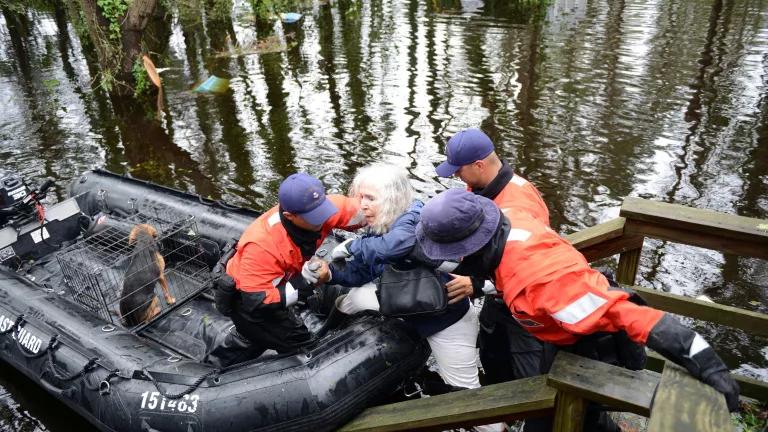House Throws a $1.9 Trillion Lifeline to a Pandemic-Wracked Nation. Now the Senate Must Quickly Follow.
This is the comprehensive national action we need to fight the worst public health crisis in a century.

Dr. Christine Choi, a second-year medical resident at Harbor-UCLA Medical Center, one of four public hospitals in Los Angeles County, wears several layers of PPE before tending to COVID-19 patients on January 15, 2021.
House Democrats threw a lifeline early Saturday to a nation reeling from the yearlong pandemic, passing President Biden’s $1.9 trillion emergency relief package to fast-track vaccines, support struggling families, and keep essential workers on the job in cash-strapped cities, states, and Native American communities.
Without a single Republican vote, the measure passed 219 to 212, with all House Democrats except two on board. Now the Senate must move swiftly to get this desperately needed and carefully targeted aid in the hands of the people who need it most, to help speed the American comeback we urgently need.
Biden’s American Rescue Plan has the support of 76 percent of the public—including 60 percent of Republicans—and 63 percent of small business owners.
The reason: It puts people first—our health, our livelihoods, our wallets, and the essential public services we all depend on.
It includes $160 billion to fight the pandemic head on, with support to help frontline health-care workers, expand testing, accelerate the manufacture and distribution of coronavirus vaccines, and set up community vaccination sites.
Addressing the pandemic that has taken more than half a million American lives is the first step toward getting our country back on its feet.
The package includes $1,400 stimulus checks for workers making up to $75,000 a year. It extends the duration of benefits for the long-term unemployed and provides relief for small businesses and farms struggling to keep the doors open and workers paid. It provides funding to help local, state, and tribal governments avoid laying off teachers, firefighters, nurses, sanitation workers, and others who provide essential services. And it’s tailored to assist those who need it the most, including working families hardest hit by the pandemic and its economic fallout.
The American Rescue Plan provides emergency assistance to help some 15 million Americans who have fallen behind in their rent, as well as money to improve mental health care. It includes aid and directives to keep low-income families from losing access to water, heat, and electricity; assistance to disadvantaged farmers, ranchers, and forest landowners; and emergency grants to improve rural health care. And it increases food assistance for the 36 million Americans who don’t have enough to eat.
This is the comprehensive national action we need to fight the worst public health crisis in a century, help the people who need it the most, and set the table for the kind of equitable, durable, broad-based recovery we need to build back better.
The coronavirus pandemic has upended our lives and killed more than 510,000 Americans. That’s more than we lost in World War II and subsequent wars in Korea, Vietnam, Iraq, and Afghanistan—combined.
And the coronavirus continues to take more than 2,000 lives every day, inflicting a disproportionate toll on low-income communities, Black people, and other people of color.
“We’re still in the teeth of this pandemic,” Biden said earlier this month, laying out the cost in human terms. “These aren’t Democrats or Republicans—they’re Americans,” Biden said at the White House. “Through no fault of their own, they’re suffering.”
Biden and House Democrats have responded with the comprehensive action effective leadership requires and this crisis demands.
Now it’s on the Senate to swiftly approve this needed assistance so Biden can sign it into law by mid-March—just in time to avert the loss of crucial federal benefits counted on by millions of families and businesses struggling to hang on in the face of pandemic challenge, struggle, and loss.




